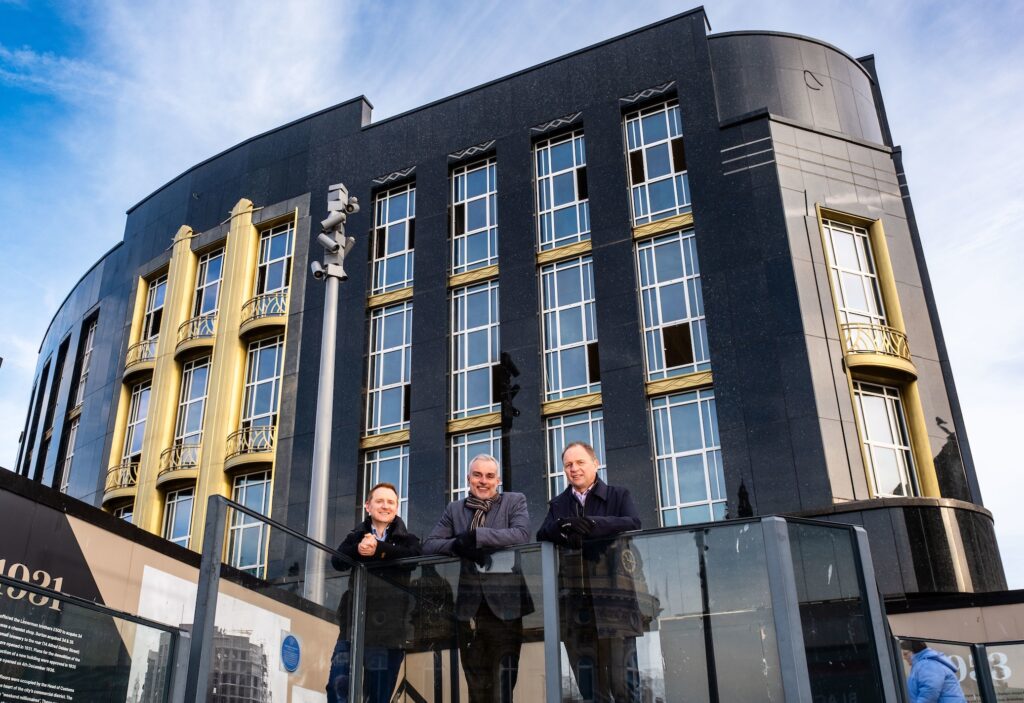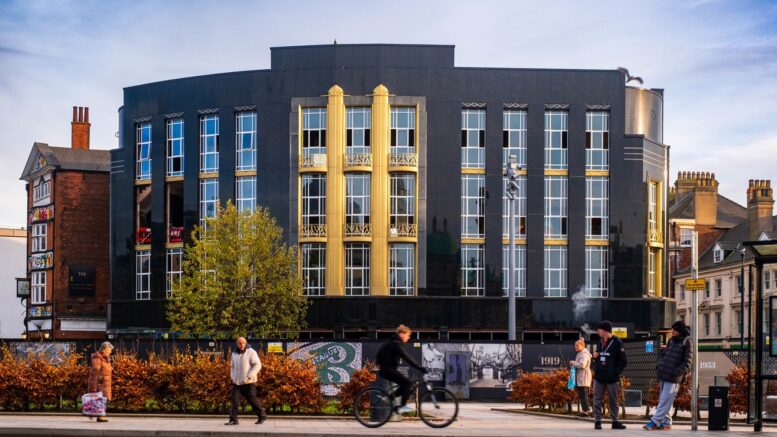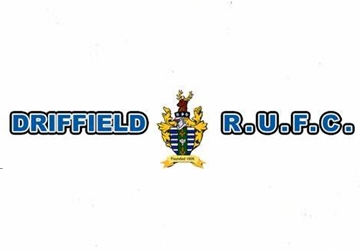The removal of scaffolding surrounding Hull’s historic Burton building has revealed the restored grandeur of the city’s 1930s landmark.
Regeneration specialist Wykeland Group is delivering the major restoration of the art deco building, taking it back to its former glory.
Once completed, the building, now called Burton House, will offer 12,700 sq ft of prime city centre space, set over five floors, all within one of Hull’s most distinctive and characterful buildings.
Central to the restoration of Burton House is the replacement of much of the granite cladding which adorns the building. Replacement granite has been sourced from the same quarry in Norway, to match the geographical origin of the original stone, which dates back to the mid-1930s.
The building’s art deco windows have also been replaced, with new signage to be installed.
Restoration of Burton House is the latest significant city centre regeneration project led by Wykeland.
Wykeland is also currently restoring Hull’s Castle Buildings and reinstating the former Earl De Grey pub, in a £2m project to bring another landmark site back into use.

Jonathan Stubbs, development director at Wykeland, said: “There has, unsurprisingly, been a huge amount of excitement and anticipation surrounding the regeneration of the Burton building. As one of the best-known landmarks in Hull, we’ve approached this project with a great deal of care and sympathy.
“With the scaffolding now removed and the restored exterior of the building revealed, people can envisage how Burton House will transform the entrance to Whitefriargate.
“As the project has progressed, we have had growing levels of interest from potential leisure and retail occupiers of the ground floor and basement accommodation, looking to make the most of this rare opportunity to move into a prime, regenerated city centre space.
“We expect that demand will further intensify now people can see the quality of the restoration we are carrying out.”
On the upper floors, significant restoration work has already seen the original lift refurbished, and work is progressing on creating desirable spaces for businesses to call home. Internal walls will be removed to create light, modern open-plan areas.
Due to the extent of the restoration work and the building’s listed status, grant funding was essential to make the project viable. The project is being supported by £750,000 from Hull City Council’s city centre grants scheme to support regeneration in the city, with a further £450,000 grant from Historic England.
Wykeland has worked closely with Hull City Council’s conservation officer and Historic England on the restoration of the building.

Cllr Paul Drake-Davis, Hull City Council’s portfolio holder for regeneration, said: “It’s wonderful to see Burton House being rightly restored to its former glory.
“For people visiting the city centre, it is a symbol of the wider regeneration of Hull which simply could not happen without companies like Wykeland.
“Hull City Council will continue to work closely with Wykeland on the broader rejuvenation of Whitefriargate, alongside other key sites in the city. Like everyone, I’m now excited to see the inside of Burton House take shape, ready for occupants to move in.”
A proposed retail or restaurant area on the ground floor will offer 2,400 sq ft of floorspace, with the basement providing 1,600 sq ft of useful back-of-house space.
The first, second and third floors each cover 2,500 sq ft, and are perfectly suited for office and wider commercial uses.
The Burton fashion empire was founded by Montague Burton, a Lithuanian immigrant who arrived in England in 1900.
The business started out in South Yorkshire and, in 1931, Mr Burton bought Nos 34 and 35 Whitefriargate – in those days a chemist shop and a small brewery – for £9,000.
Plans to demolish the existing shop and construct a new building were approved in 1935 and the current art deco landmark – designed for Montague Burton by famed Chief Architect Henry Wilson – opened in December 1936.
When Burton owner Arcadia Group went into administration in 2020, the store closed its doors and the building has remained empty ever since.
Wykeland purchased the site in 2021, following the previous purchases of the former Marks & Spencer and Littlewoods buildings in Whitefriargate.
In all, Wykeland has purchased nine properties between Whitefriargate and Alfred Gelder Street, totalling 1,600 sq ft since 2020 as part of a long-term regeneration project.






























